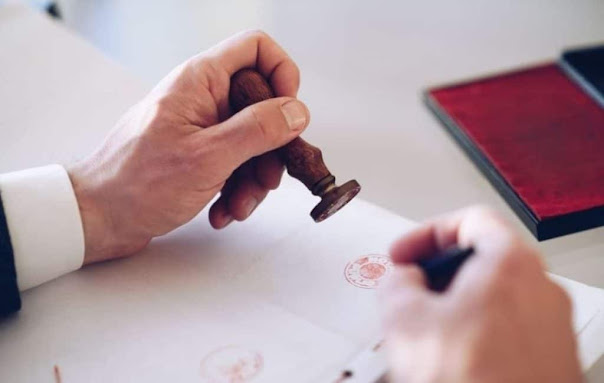How Does a Notary Public Notarize Your Documents? 5 Steps |Notary in the East
Notary
publics play a crucial role in ensuring the authenticity and legality of
various documents, from contracts to affidavits. Their stamp and signature
indicate that the document has been properly executed and witnessed. But how
does a notary public notarize your documents? Here are five essential steps in
the notarization process:
Verification of Identity:
The
first step in notarizing a document is the verification of the signer's
identity. The notary public will ask you to
present a valid form of government-issued identification, such as a driver's
license, passport, or state ID. This step is crucial to ensure that the person
signing the document is who they claim to be.
Confirmation
of Understanding:
Once your identity is verified, the notary will ask you to confirm that
you understand the document you are about to sign. They may ask if you are
signing the document voluntarily and if you are aware of its contents. This is
to ensure that you are not coerced or misled into signing something against
your will.
Witnessing
the Signing:
The notary public will then witness
the signing of the document. This involves watching you sign the document in
their presence. They will notarize the document only if you sign it in their
physical presence. If you've already signed the document before meeting with
the notary, they cannot notarize it.
Notarization
Act:
After witnessing your signature, the notary
will perform the notarization act. This typically involves affixing their
official stamp or seal on the document and signing it. The notary's signature
and stamp indicate that they have verified your identity, confirmed your
understanding of the document, and witnessed the signing.
Completion
of Notary Certificate:
Most documents have a notary certificate section where the notary public provides
additional information about the notarization, including the date, location,
and type of notarization They will also include their official seal and
signature. The notary may also keep a journal in which they record details
about the notarization, providing an additional layer of documentation.
It's important to note that the notary
public's role is not to offer legal advice or review the content of the
document for its legal implications. Instead, they focus on the procedural
aspects of the notarization process, ensuring that the document signing adheres
to legal requirements.
After notarization, the document is considered
legally valid, and it can be used as evidence in legal proceedings or for other
official purposes. Notarization adds an extra layer of credibility and
authenticity to the document, making it more reliable and trustworthy in the
eyes of the law and third parties.
In conclusion, the notarization process
involves several critical steps, including verifying the signer's identity,
confirming their understanding of the document, witnessing the signing,
performing the notarization act, and completing the notary certificate.
These steps ensure that documents are properly executed and legally binding,
making notary publics invaluable in
various legal and business transactions.





Comments
Post a Comment